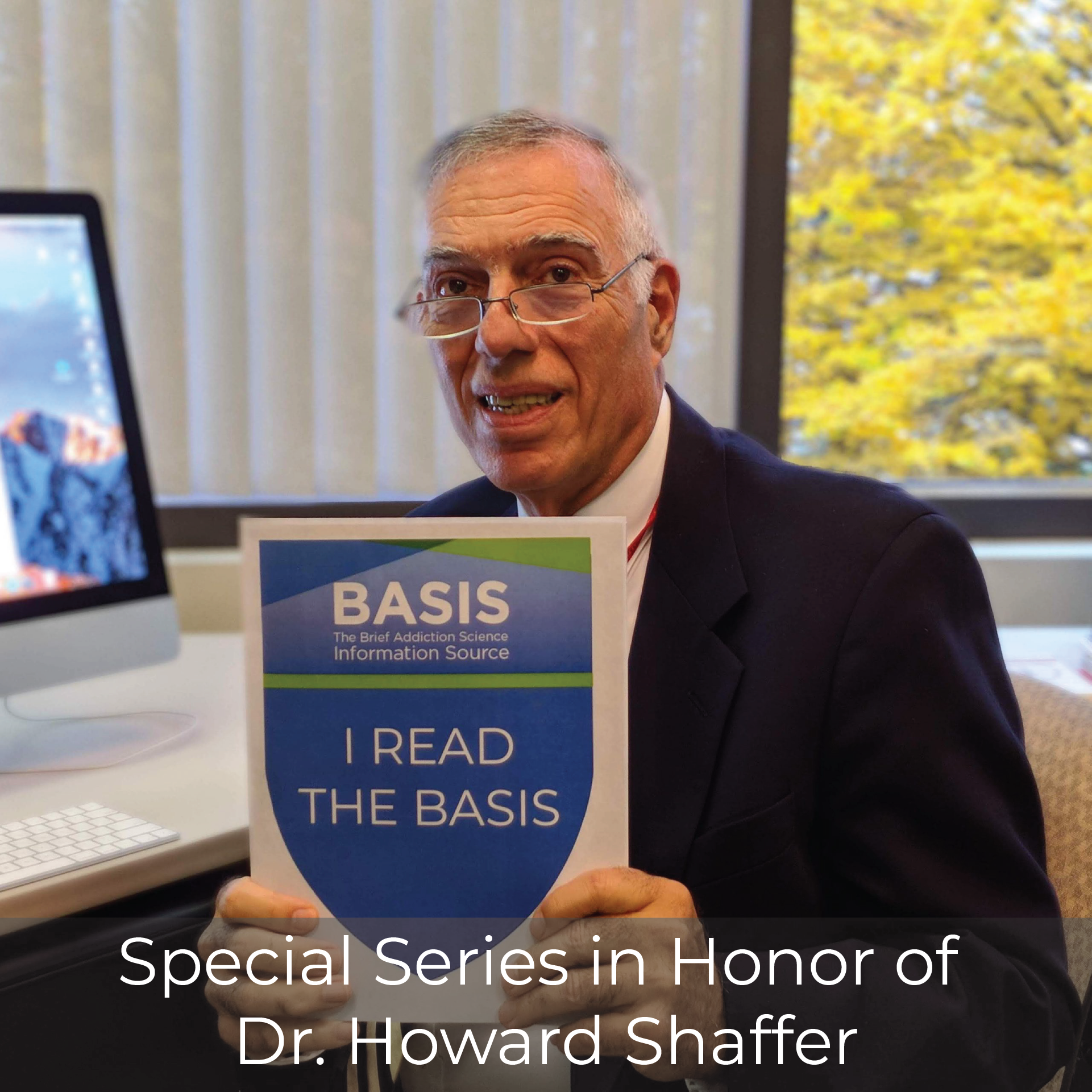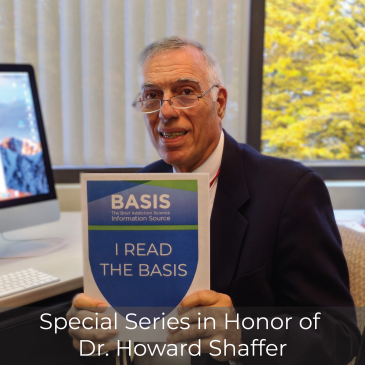 Several months ago, Dr. Debi LaPlante, Director of the Division on Addiction, and I used this platform to announce the retirement of Dr. Howard Shaffer, founder of the Division on Addiction. Today, we are pleased to launch a month-long Special Series in his honor.
Several months ago, Dr. Debi LaPlante, Director of the Division on Addiction, and I used this platform to announce the retirement of Dr. Howard Shaffer, founder of the Division on Addiction. Today, we are pleased to launch a month-long Special Series in his honor.
Each week this month, we will review a recent scientific article that exemplifies Howard’s lasting impact on the field of addiction science. Selecting just four articles that cite Howard’s work was a challenge, given that his publications have been cited over 21,000 times. To narrow it down, we will focus specifically on how the syndrome model of addiction, which Howard proposed in 2004 along with his colleagues Debi LaPlante, Richard LaBrie, Rachel Kidman, Anthony Donato, and Michael Stanton, has influenced scientists’ understanding of addiction. The syndrome model considers substance use disorders and behavioral addictions, such as gambling disorder, to be different expressions of the same underlying syndrome, with shared etiological factors and shared recovery pathways. Extensive evidence has supported the syndrome model, and in 2013, the diagnostic manual of mental health disorders was revised to situate gambling disorder alongside substance use disorders, emphasizing their commonalities.
- To begin our Special Series, The WAGER will review a 2022 study led by Sophie Coelho that used the syndrome model as a theoretical framework for examining the perceived causes of problematic substance use, gambling, and other behaviors from the perspective of individuals with lived experience.
- Next up, The DRAM will summarize a 2025 study that explored the link between alcohol-related problems and problematic sports betting among young adults. This study, by Scott Graupensperger and colleagues, provides evidence of common risk factors underlying these two addictive behaviors.
- In week three, ASHES will describe a 2022 study by Christina Lee et al. exploring addiction substitution, which happens when a person cuts back on one addictive behavior (e.g., heavy drinking) but also begins or intensifies another addictive behavior (e.g., smoking), commonly because of shared risk factors that have not been addressed.
- Finally, STASH will review a 2025 study led by Chia-Heng Lin. This study surveyed participants with a diagnosed ketamine use disorder and revealed that underlying mental health concerns and gaming behaviors increased the risk for problematic smartphone use.
Those of us who have been fortunate to work alongside Howard understand that his impact extends far beyond scientific contributions. He has left a lasting positive impact on those who have been on the receiving end of his generous mentorship. To that end, throughout the month, we will share reflections and tributes written by his current and former colleagues.
The list includes:
- Dr. Ryan Martin, Professor of Health Education and Promotion at the College of Health and Human Performance, East Carolina University and former Thomas N. Cummings Research Fellow at the Division on Addiction and the Massachusetts Council on Compulsive Gambling;
- Dr. Sarah Nelson, Director of Research at the Division on Addiction;
- Dr. Debi LaPlante, Director of the Division on Addiction;
- Dr. Paige Shaffer, Assistant Professor in the Division of Health Systems Science, Department of Medicine, UMass Chan Medical School;
- Ms. Kathleen Scanlan, former Executive Director at Association of Problem Gambling Service Administrators, former Executive Director of the Massachusetts Council on Compulsive Gambling, and former Board Member and Education Committee Chair for the National Council on Problem Gambling;
- Dr. Michael Stanton, Associate Professor of Public Health at California State University, East Bay and former Research Coordinator at the Division on Addiction;
- Ms. Christine Thurmond, Head of Responsible Gaming External Relations at DraftKings, Inc. and former Administrative Director at the Division on Addiction;
- Myself
We hope you enjoy and learn from this Special Series, prepared in honor of a treasured colleague.
– Heather Gray, PhD, Director of Academic Affairs, Division on Addiction at Cambridge Health Alliance, a Harvard Medical School teaching hospital
Conflict of Interest Statement
Dr. Gray has no conflicts of interest to disclose of personal, financial, or other benefits that could be seen as influencing the content of this editorial. The Division on Addiction’s funding sources can be found here.
Want CE credit for reading BASIS articles? Click here to visit our Courses Website and access our free online courses.




